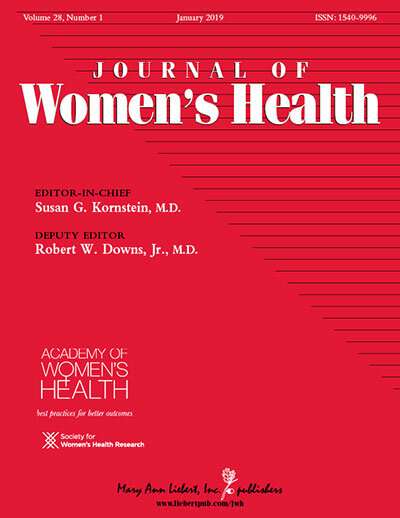Credit: Mary Ann Liebert, Inc., publishers
A new Centers for Disease Control and Prevention (CDC) study found that smoking in the three months prior to assisted reproductive technology (ART) treatment was associated with higher adjusted odds of cycle cancellation resulting in no embryo transfer and cancellations before fresh oocyte retrieval or frozen embryo transfer. Associations between smoking and selected ART clinical outcomes are described in an article published in Journal of Women's Health.
This was a retrospective cohort study which used National ART Surveillance System data on ART treatments performed between 2009 and 2013 in all U.S. states and territories. In "Smoking and Clinical Outcomes of Assisted Reproductive Technologies," Karilynn Rockhill, MPH, CDC (Atlanta, GA) and Oak Ridge Institute for Science and Education (Tennessee) and colleagues from the CDC found that more than 12,000 ART cycles during this period were potentially exposed to smoking. Although smoking increased the odds of cycle cancellation, associations with other clinical outcomes were not significant.
"As smoking may reduce the chance of becoming pregnant with ART, it is important that providers discuss with women the effects of smoking on fertility and pregnancy outcomes," states Susan G. Kornstein, MD, Editor-in-Chief of Journal of Women's Health and Executive Director of the Virginia Commonwealth University Institute for Women's Health, Richmond, VA. "Women should be offered information about effective smoking cessation interventions and support to help them quit smoking before they start ART treatment."
More information: Karilynn Rockhill et al, Smoking and Clinical Outcomes of Assisted Reproductive Technologies, Journal of Women's Health (2019). DOI: 10.1089/jwh.2018.7293
Journal information: Journal of Women's Health
Provided by Mary Ann Liebert, Inc























